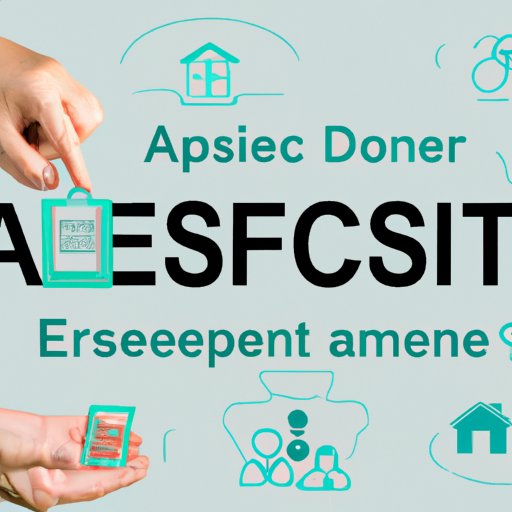I. Introduction:
The rising cost of nursing home care is a daunting problem for many people. In addition to the emotional toll that long-term care can take, the financial burden can deplete savings and assets that have taken a lifetime to accumulate. This article explores different ways that individuals can protect their assets from nursing home care costs, including creating an irrevocable trust, gifting of assets, spousal impoverishment rules, long-term care insurance, Medicaid planning, family limited partnership, and homestead exemptions.
II. Creating an Irrevocable Trust:
An irrevocable trust is a legal arrangement that, once established, cannot be altered or revoked. This means that assets transferred into the trust are no longer owned by the individual, but are instead owned by the trust. By putting assets into an irrevocable trust, they are protected from nursing home care costs. Creating an irrevocable trust involves working with a trusted attorney to draft and establish the legal document. The benefits of using an irrevocable trust include protecting assets, reducing estate taxes, and avoiding probate.
III. Gifting of Assets:
Gifting of assets is another way to shelter them from nursing home care costs. Outright gifts are transfers of ownership without any strings attached. Gifts with a retained interest are transfers of ownership that allow the giver to maintain certain rights to the assets, such as income or use. It is important to understand the Medicaid penalty lookback rule, which stipulates that any gifts made within five years of applying for Medicaid will be subject to a penalty. The benefits of gifting assets include protecting them and reducing tax liability.
IV. Spousal Impoverishment Rules:
Spousal impoverishment rules are designed to prevent one spouse from becoming impoverished while the other receives nursing home care. By transferring assets to the healthy spouse, they can be protected from nursing home care costs. The transfer of assets must be made before applying for Medicaid, and according to set guidelines. The benefits of qualifying for spousal impoverishment rules include protecting assets and ensuring that both spouses receive necessary care.
V. Long-Term Care Insurance:
Long-term care insurance is a type of insurance policy that provides coverage for long-term care, including nursing home care. The benefits include preserving assets and receiving necessary care without depleting them. To qualify for long-term care insurance, individuals must meet certain health requirements and apply prior to needing care. The cost of premiums can vary widely, so it is important to shop around for the best policy based on individual circumstances.
VI. Medicaid Planning:
Medicaid planning involves using legal tools to protect assets from nursing home care costs while still being eligible for Medicaid. To qualify for Medicaid, individuals must meet certain income and asset requirements. By understanding the eligibility requirements and utilizing legal tools such as trusts, annuities, and gifting, individuals can protect their assets while still receiving necessary care. The benefits of Medicaid planning include protecting assets and ensuring access to care.
VII. Family Limited Partnership:
A family limited partnership is a legal structure that allows for the transfer of assets to family members while still maintaining control over them. By setting up a family limited partnership, individuals can protect assets from nursing home care costs and decrease estate taxes. The benefits of creating a family limited partnership include protecting assets and minimizing tax liability.
VIII. Homestead Exemptions:
A homestead exemption is a legal protection that allows a certain amount of home equity to be shielded from nursing home care costs. The amount of the exemption can vary based on state laws and individual circumstances. It is important to work with a trusted attorney to maximize homestead exemption coverage. The benefits of homestead exemptions include protecting a significant portion of home equity and ensuring that the home is not lost due to nursing home care costs.
IX. Conclusion:
Protecting assets from nursing home care costs is a complex process that requires careful planning and a thorough understanding of legal options. By exploring the various ways to shelter assets, individuals can ensure financial security while still receiving necessary care. It is important to work with a trusted attorney and financial advisor to determine the best course of action based on individual circumstances. Resources such as the National Academy of Elder Law Attorneys (NAELA) and the Aging Life Care Association can provide additional information and next steps.
(Note: Is this article not meeting your expectations? Do you have knowledge or insights to share? Unlock new opportunities and expand your reach by joining our authors team. Click Registration to join us and share your expertise with our readers.)
